The Boston Symphony music director has taken up the instrument in public for the first time since he was in his early twenties in Latvia.
His duet partner is BSO principal trumpet, Thomas Rolfs
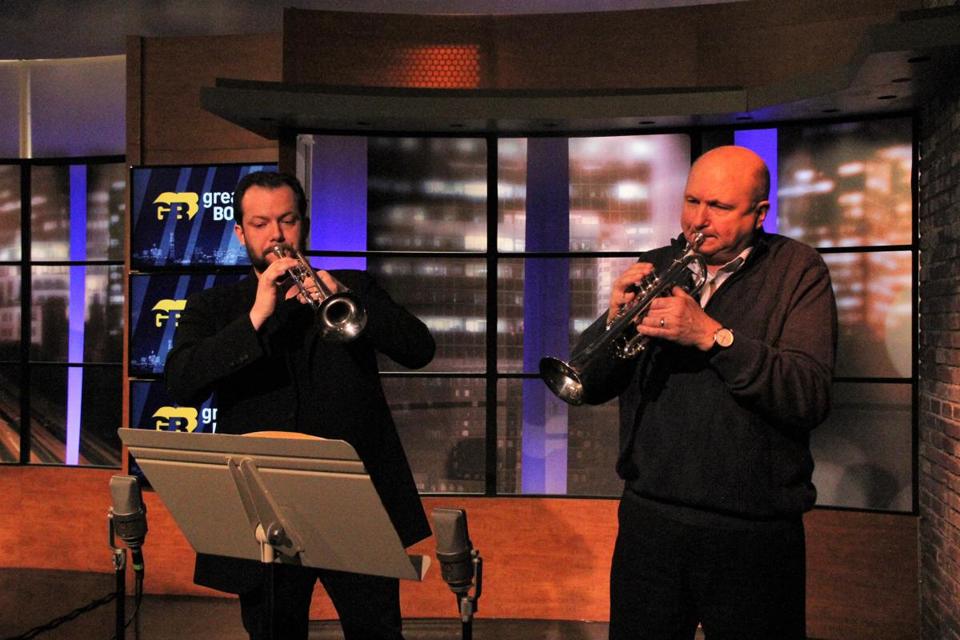
The Boston Symphony music director has taken up the instrument in public for the first time since he was in his early twenties in Latvia.
His duet partner is BSO principal trumpet, Thomas Rolfs

Huang Feili returned to China from the US in 1951, believing in Mao’s vision.
Thirteen years later he was attacked for being a spy, beaten up by his Beijing students and treated as a non-person for several years.
Huang has died in Hong Kong, at a great age.
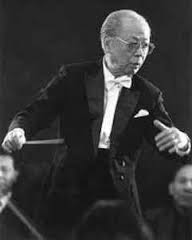
The President of the Russian Shooting Federation – a gun lobby, of sorts – prepares for his solo moment in Strauss’s Radetzky March.

Live concert, live ammunition?
They’ve announced another $30 million building.
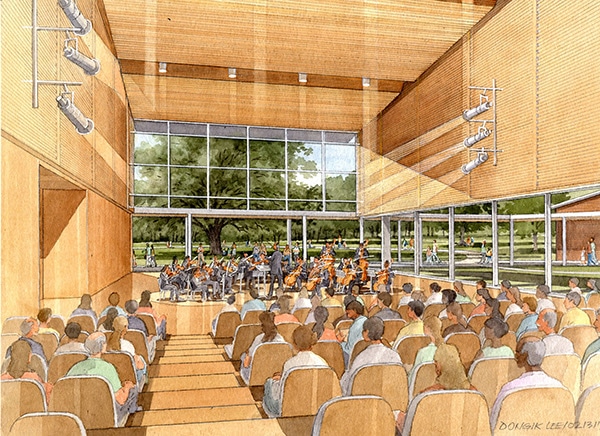
press release:
The Boston Symphony Orchestra announces a major new investment in the future of Tanglewood that will broaden its reputation as one of the premier festivals in the world and famed summer home of the BSO since 1937, as well as that of its acclaimed summer music academy, the Tanglewood Music Center, founded in 1940. Launching a new chapter in the illustrious festival’s 80-year history, Tanglewood has announced plans for the construction of a new multi-use, multi-season four-building complex designed to support the performance and rehearsal activities of the Tanglewood Music Center and be the focal point of a new initiative, the Tanglewood Learning Institute, offering wide-ranging education and enrichment programs designed to enhance the patron experience.
Scheduled to open in summer 2019, the new building complex will be designed by William Rawn Associates, Architects, and will be the largest building project at Tanglewood since the construction of Ozawa Hall (1994), also designed by William Rawn Associates. Reed Hilderbrand will serve as the project’s landscape architects.
Stephen Carpenter learned a lot about Mendelssohn when he was general manager of the Orchestra Age of Enlightenment.
So much detail that he’s now guiding Mendelssohn tours in Scotland.
See here.

The death has been announced of Carlton Woods, a well-liked conductor who lived in Cleveland.
At the time of his death he was artistic director of Blue Water Chamber Orchestra.
Before that, he was director of orchestral studies at Central Michigan University and music director of the North Arkansas Symphony.

Stanisław Skrowaczewski died on 21 February 2017, at the age of 93. In a long and well-loved career, he was principal conductor of the Hall Orchestra and music director in Minneapolis, where he returned every season until this year.
Official biography follows.
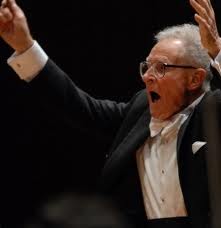
Born in 1923 in Lwów, Poland, Skrowaczewski began piano and violin studies at the age of four and composed his first symphonic work at seven. He played and conducted Beethoven’s Third Piano Concerto at the age of 13. Despite severe artistic censorship from the first Soviet occupation (1939-41), Skrowaczewski enjoyed Lwów’s flourishing cultural scene during his formative years, and immersed himself in the city’s musical life. During this period, Skrowaczewski learned English and followed the progress of the Second World War by listening secretly to the BBC. In 1941 he suffered a hand injury from a bomb explosion during the Nazi assault on the city which ended his keyboard career, at which point he decided to focus on composing and conducting.
Following the war, Skrowaczewski moved to Kraków, the new musical centre of Poland, and through his conducting and compositions was hailed a future star by the most prominent Polish composers of the time, including Andrzej Panufnik and Witold Lutosławski (whose Concerto for Orchestra he conducted in its U.S. premiere in 1958). In 1946 he became Music Director of the Wrocław (Breslau) Philharmonic, and then Music Director of the Silesian State Philharmonic of Katowice (1949-54), the Kraków Philharmonic (1954-56), and permanent conductor of the Warsaw National Philharmonic Orchestra (1956-59). In the 1940s Skrowaczewski studied in Paris with Nadia Boulanger, during which time he joined the avant-garde composer’s organization Groupe Zodiaque. In 1948 he conducted the Paris premiere of Shostakovich’s Fifth Symphony with L’Orchestre Philharmonique de Radio France. A few years later Shostakovich heard a Skrowaczewski performance of the Fifth Symphony and he praised the young maestro’s interpretation.
After many years working in isolated communist Poland, a breakthrough came in 1956 when Skrowaczewski won the Santa Cecilia Competition for Conductors in Rome. This award led to an invitation by conductor George Szell to conduct the Cleveland Orchestra in 1958, a significant moment which marked the next chapter of Skrowacewski’s international career. Engagements with the New York Philharmonic Orchestra amongst others followed and in 1960, at the age of 36, he became Music Director of the Minneapolis Symphony Orchestra (now the Minnesota Orchestra), a position he held for 19 years. It was at this point that he left Poland to become a U.S. citizen, having lived through the Second World War and three occupations of Lwów.
During the 1960s Skrowaczewski made many debuts with major orchestras including the Royal Concertgebouw, London Symphony, Chicago Symphony, Boston Symphony, Los Angeles Philharmonic, Munich Philharmonic, and Vienna Philharmonic orchestras, as well as with the Vienna State Opera and Metropolitan Opera (New York). In particular, he became a regular guest-conductor of the Philadelphia Orchestra and Cleveland Orchestra, where he returned most recently in 2015 and the Berlin Philharmonic, where he returned most recently in 2011.
From 1984 to 1991 Skrowaczewski was Principal Conductor of The Hallé in Manchester with whom he toured Europe and the U.S. and recorded extensively, working with them regularly thereafter. In 2007 he was appointed Principal Conductor of the Yomiuri Nippon Symphony Orchestra in Japan and conducted them every year since, most recently as their Honorary Conductor Laureate. From 1979 he served as Conductor Laureate for the Minnesota Orchestra, conducting them annually for 56 seasons, an unprecedented length in the history of major American orchestras. In 2015 he was made Conductor Laureate of the Deutsche Radio Philharmonie Saarbrücken Kaiserslautern, following a long relationship and many celebrated recordings, including the complete Bruckner, Brahms, Schumann and Beethoven symphonies for Arte Nova Classics (now Oehms Classics). These received enormous critical acclaim and joined an extensive discography with other orchestras including the Yomiuri Nippon Symphony for Columbia Records, NHK Symphony, Minnesota, Royal Concertgebouw, London Philharmonic, London Symphony and Berlin Philharmonic orchestras, Deutsches Symphonie-Orchester Berlin, Orchestre National de France, Philharmonique de Radio France and The Hallé.
Skrowaczewski’s compositions have been performed and recorded widely and have received critical acclaim, with his Concerto for Orchestra (1985) and Passacaglia Immaginaria (1995) both being nominated for the Pulitzer Prize. Recent compositions include the widely performed Music for Winds (2009) and King Lynn and His 3 Naughty Kobolds (2014) for cellist Lynn Harrell. During the last year of his life he was composing a requiem for orchestra and chorus.
The recipient of numerous accolades, Skrowaczewski was awarded the Knight’s Cross of Polonia Restituta, one of Poland’s highest decorations, and has six Honorary Doctorates, awarded most recently by the universities of Minnesota and Wrocław, the New England Conservatory of Music and the Karol Szymanowski Academy of Music, Katowice. He is also the recipient of the Bruckner Society of America’s Kilenyi Medal of Honor and the Gold Medal of the Mahler-Bruckner Society, as well as five ASCAP Awards for his programming of contemporary music.
A comprehensive account of Skrowaczewski’s life and work can be found in Seeking the Infinite: The Musical Life of Stanisław Skrowaczewski, by Frederick Harris, Jr.

A report in La Repubblica says that Italians are bucking the zimmer-frame trend.
Classical record sales are up 20 percent, Rome is staging classical raves, Naples sells opera tickets for 7 Euros to the under-30s, La Fenice is showing an 11% increase in under-40 online ticket buyers. Classical is looking sexy once again.
Read here.

WBACH in Portland, Maine, has played what it says in the name for 25 years.
No longer.
As of yesterday, the station is playing country music.
‘We would like to thank the fans of WBACH and classical music for listening over the years and we regret any inconvenience as a result of the changes,’ said operations manager Stan Bennett.
Just like that.

The Ernst Siemens Foundation has given 35,000 Euros each to three young composers.
They are a Swede, Lisa Streich; a Dane, Simon Steen-Andersen; and a Swiss, Michael Pelzel.
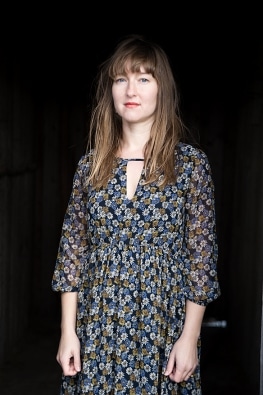
Víctor Ibarra, 38, has won the first Basel Composition Competition, chaired by Georg Friedrich Haas with a prize of 60,000 Swiss francs.
Haas cited the ‘exciting harmonic world’ invented by Ibarra. The award commemorates the new-music maecenas Paul Sacher.
Second prize (SFr25,000) went to the Itaiian Pasquale Corrado, third prize (SFr15,000) was awarded to South Hannah Hanbiel Choi from South Korea.
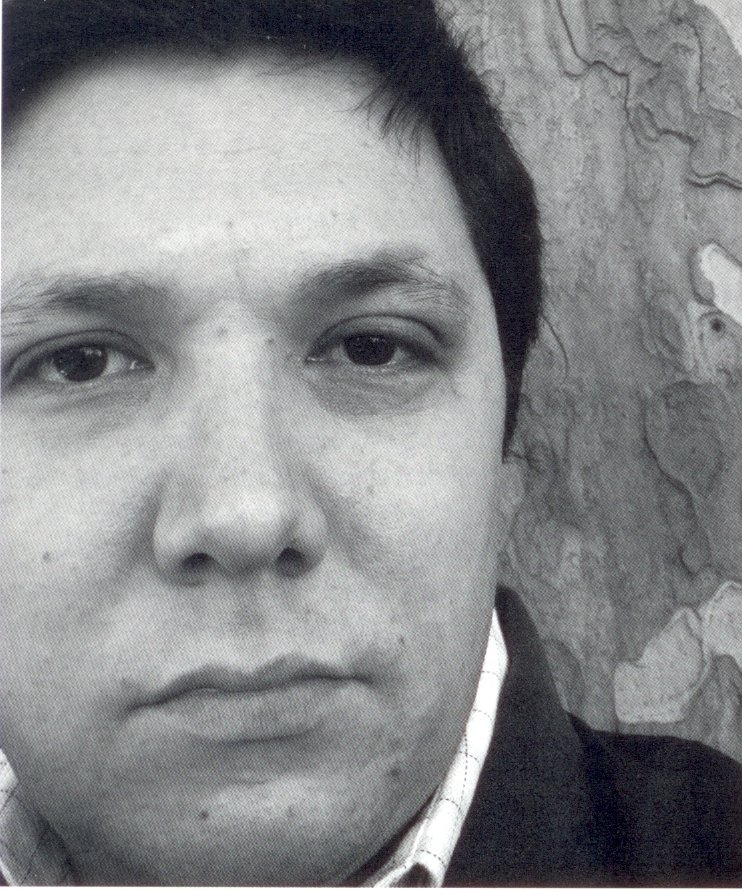
Interview here.
In the early blogosphere, a young American woman in Milan set the pulses racing with some hot gossip and goings-out in the capital of Italian opera.
We got to meet her, after agreeing not to reveal her name, and liked her a lot.
But the blog fell silent in 2014 and we’ve lost contact. Her Twitter account has been inactive for almost a year.
Whatever happened to Operachic? This is a feed that demands to be reactivated.
